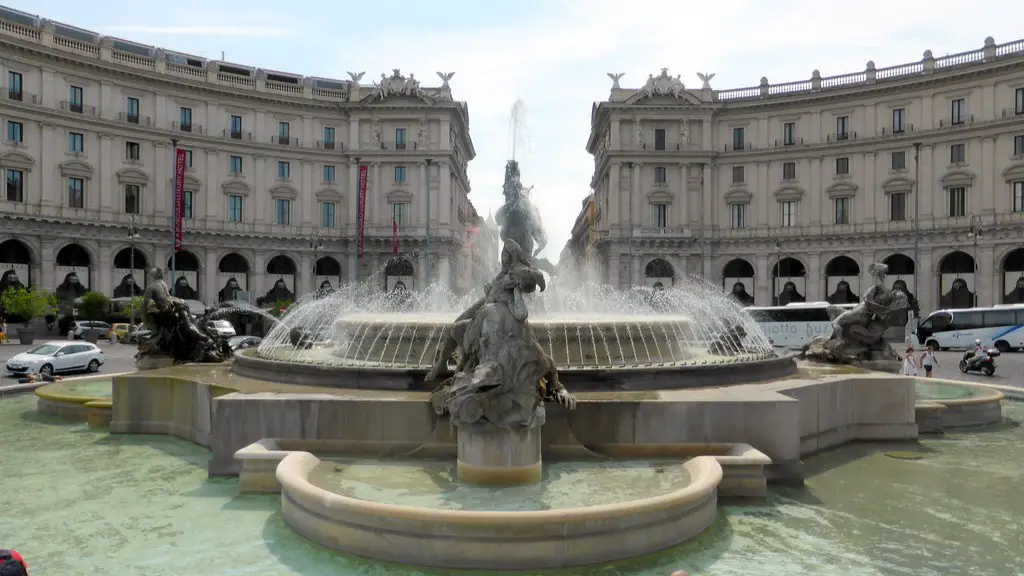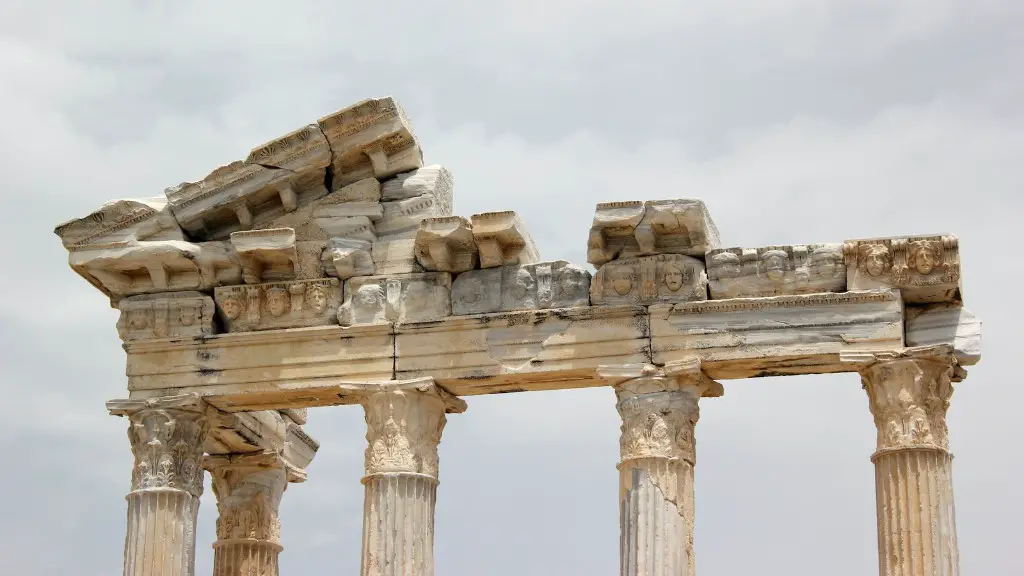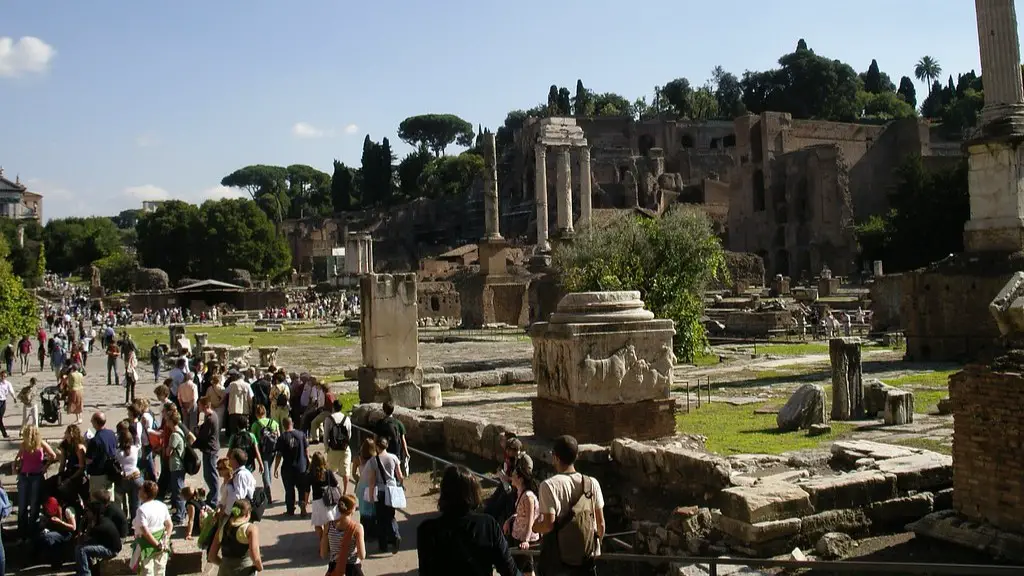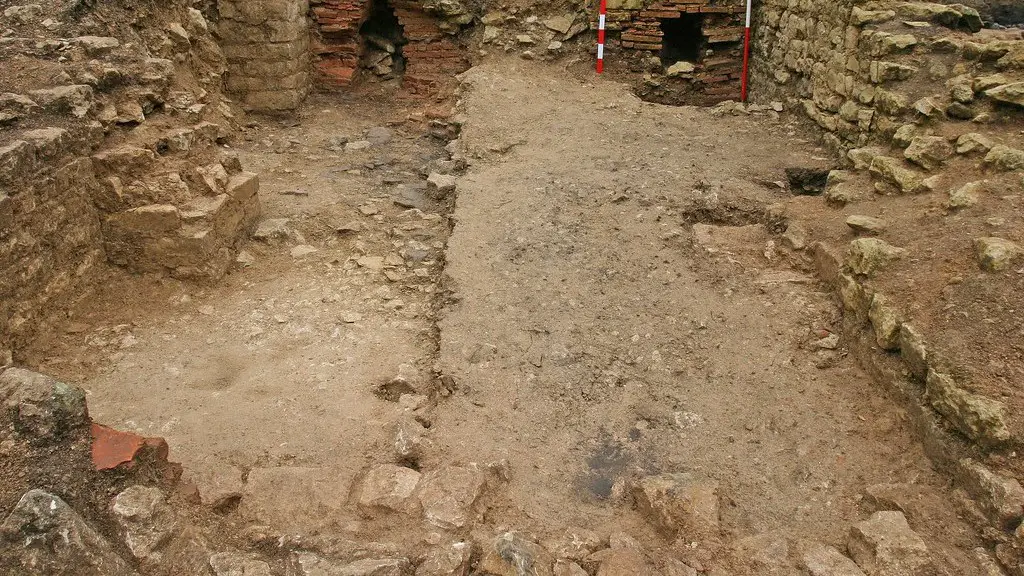The Plebeians were one of the ancient Roman classes that acted as social, political and economic intermediaries between the powerful nobles and the enslaved populace in the Roman Republic. The term is descended from the Latin plebs, meaning ‘the common people’. The Plebeians were distinct from the ruling patrician class which held ruling positions in the Republic and was the source of most of Rome’s wealth, power and prestige.
Traditionally, the Plebeian class was excluded from political participation and voting, until the Roman laws of 471BC granted them the right to stand and be elected to the political offices. The issue of Plebeians’ political rights was a major source of tension and conflict between the two classes, particularly after the reforms of the Gracchus brothers. These reforms helped to ensure that the Plebeians had access to their fair share of political power and resources.
From the historical perspective, the Plebeian class was initially regarded as a group of low-class people, with a lack of the resources and education required to participate in politics and other public activities. This changed over time, as the class evolved and became more organized and politically conscious. Over the years, they managed to acquire more rights and privileges, such as the right to vote, the right to stand for election, and access to economic opportunities.
During the later part of the Roman Republic and into the Empire, the Plebeians were afforded some respect and recognition by the rulers. They were granted access to the same resources and opportunities as their upper-class counterparts. The Plebeians gained more influence in the Roman society and their numbers swelled as more of them became involved in the political process.
In terms of their economic activity, the Plebeians were predominantly small farmers, artisans and traders who made the bulk of their living through trading and selling their wares. They were able to gain access to resources such as land and money through government funds, and with their collective economic might, they were able to sustain and increase their wealth.
The legacy of the Plebeians was significant in terms of their contribution to the culture, politics and economics of the Roman Empire. They were instrumental in maintaining the social tensions between the ruling patricians and the enslaved populace, and were able to secure a greater level of economic and political benefits for the lower-class people.
Economic Contributions of the Plebeians
The Plebeians played a crucial role in the Roman economy, as they were responsible for producing most of the goods and services necessary for the development of the society. Their small businesses provided a necessary link between the social classes and enabled them to access the resources and labour needed to meet the demands of the Roman people.
The Plebeians were particularly adept at small-scale trade and commerce, and their roadside stalls and merchants’ stalls were a common sight in the cities of the Roman Empire. From these outlets, they sold a variety of goods, from foodstuffs to clothing, to a variety of people from both the upper and lower classes. This enabled them to increase their wealth and help to fuel the economy of the Roman Empire.
The Plebeians were also highly important to the Roman Empire in terms of providing a reliable workforce. As a result of their newfound wealth, they were able to purchase slaves and use them to perform a variety of tasks, from agricultural work to building constructions. This enabled the Roman Empire to expand its reach and power throughout the region, as well as providing valuable economic gains to the citizens of the Empire.
Overall, the Plebeians played an important role in the Roman economy, and their contribution to the Empire was significant. Without their contribution, the Roman Empire may not have achieved the levels of success that it did.
Political Influence of the Plebeians
The Plebeians were a major force in Roman politics and their influence was influential in the legislative process. Despite their exclusion from political power, the Plebeians were able to gain a certain level of influence in the government through their organization and collective action.
The Plebeians were instrumental in passing a number of important laws that granted them greater freedom and autonomy, such as the Lex Tribune, which granted them the right to elect their own tribunes, or representatives in the Roman Senate. This granted the Plebeians a voice in the Roman legislature, which had been controlled by the ruling patrician class up until then.
With the increase in their political power, the Plebeians were also able to press for various reforms and changes in the Roman legal system. From demanding an end to debt slavery to the establishment of a jury system, the Plebeians managed to make significant changes to the Roman legal system. This had a far-reaching impact on the Roman Empire, as the reforms enabled people from all classes to participate in the justice system, rather than just a select few.
The Plebeians were also a major contributor to the legacy of Roman culture, as many of the ideas and traditions of the Roman Empire were shaped by the social values and ideologies of the Plebeians. The ideals of liberty, justice, and equality that characterized much of the Roman way of life were based upon the values and principles of the Plebeian class.
In conclusion, the Plebeians played an important role in the Roman society and their contribution to the culture, politics and economics of the Roman Empire was significant.
Social Outlook of the Plebeians
The Plebeians were viewed as the low-class people of the Roman social hierarchy, as they were traditionally excluded from political power, access to resources and privileges. The Plebeians faced a variety of disadvantages and restrictions in terms of social and economic freedoms, and faced significant prejudice from the ruling patrician class.
The Plebeians were restricted in terms of their social mobility, as they were largely confined to their own neighbourhoods and communities. They were barred from owning land, which further limited their economic opportunities, and were not granted the same access to education and other forms of intellectual development.
The Plebeians had to cope with a number of social stigmas and prejudice, as they were seen as inferior to their patrician counterparts and were not granted the same respect and privileges. This created a significant barrier to their integration into the Roman Empire, as their lower-class status was often used as an excuse to deny them their basic rights.
In spite of the restrictions and prejudices that the Plebeians faced, they were still able to maintain their social standing in the Roman Empire. Through their collective action and solidarity, the Plebeians managed to secure a degree of autonomy, autonomy which was increasingly reflected in the laws and policies of the Roman Empire.
Overall, the Plebeians were an important part of Roman society, and their legacy continues to shape the contemporary understanding of Rome and its legacy.
Overview of Late Roman Plebeian Life
By the later part of the Roman Empire, the Plebeian class had acquired a degree of political power and autonomy, and their impact on the Roman society was significant. Through their organization, they were able to acquire more rights and privileges, such as the right to vote, the right to stand for election and to hold public office.
The late Plebeian period also saw a significant growth in the economic power of the Plebeians. This led to their increased involvement in trade and commerce, and their ability to access resources and labour enabled them to expand their businesses and increase their wealth.
In terms of their social standing, the Plebeians had attained a degree of respect and acceptance from their patrician counterparts. This was reflected in the respect that the Senate and the ruling class gave to Plebeian leaders, such as the Gracchus Brothers, and the willingness of the nobility to accept the proposal of the Lex Tribune.
The Plebeians also managed to improve their social standing, as they were able to take advantage of the resources available to them and establish themselves as respected members of Roman society. This enabled them to become more involved in public life, and to become a major cultural force in the Roman Empire.
Overall, the late period of the Plebeians was significant in terms of the impact that they had on the Roman Empire, and their legacy still resonates in the contemporary world.
Legacy of Plebeians
The legacy of the Plebeians is significant, as their contribution to the Roman Empire had a far-reaching impact on the culture, politics and economics of the time.
In terms of their contribution to culture and society, the Plebeian class was a major influence on the Roman legal system, as their reforms enabled the entry of more common people into the legal system, as well as granting Roman citizens more rights and freedoms.
The legacy of the Plebeians also had a major impact on the economy of the Roman Empire, as their businesses provided a necessary link between the social classes, enabling them to access the resources and labour that they needed to make a living.
The Plebeians also played a crucial role in Roman politics, as their organization and collective action enabled them to gain more political power, pushing for various reforms and changes in the Roman legal system. This had a far reaching impact on the Roman Empire, as the reforms enabled more people to participate in the justice system and access the resources that they needed to make a living.
Lastly, the Plebeians were a major contributor to the legacy of Roman culture, as the values and principles that they held were a major influence on the Roman way of life. The ideals of liberty, justice, and equality that defined the Roman way of life were based upon the values and principles of the Plebeian class.
Overall, the legacy of the Plebeians is significant, and their contribution to the Roman Empire is still felt today.





